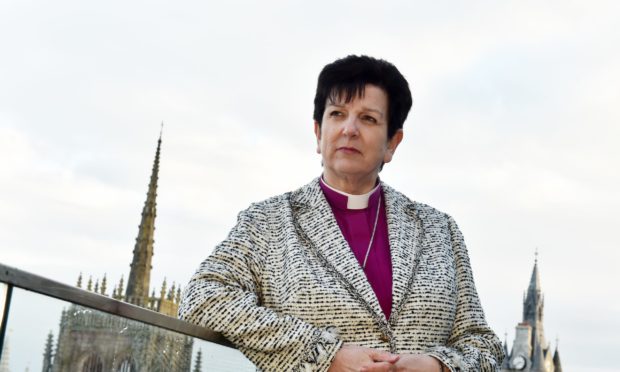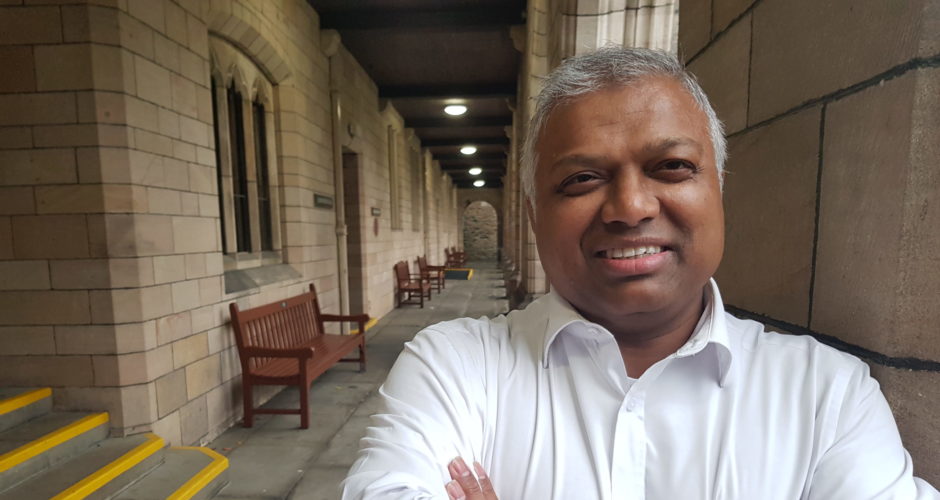Scotland’s first female bishop believes new hate crime laws will have to be “very clear” on what can and cannot be said to and by people in faith communities.
Rt Rev Anne Dyer, Bishop of Aberdeen and Orkney, has joined a chorus of voices in recent days expressing their views on the controversial Hate Crime Bill, which was introduced to the Scottish Parliament in April.
The proposed revamp of the law widens the ‘stirring up hatred’ offence from race matters to include age, religion, disability, sexual orientation and transgender issues.
Rev Dyer, who was selected as the first female bishop in the Scottish Episcopal Church in 2017, said she is “supportive” of the Scottish Government considering the issue of hate crime and seeking to consolidate existing legislation to “protect everyone in society”.
However, she acknowledged the importance of ensuring that any legislation strikes the balance of protecting people from hate being stirred up against them but also defending freedom of expression.
She added: “Very careful consideration to how such different rights are to be safeguarded will be needed.
“Any future legislation will need to be very clear as to what can and cannot be said to and by people in faith communities, including the question of how ‘intent’ to stir up hatred is to be demonstrated.
“In this regard, the proposed legislation will need close scrutiny and debate at Holyrood.”
Any future legislation will need to be very clear as to what can and cannot be said to and by people in faith communities, including the question of how ‘intent’ to stir up hatred is to be demonstrated.”
Rt Rev Anne Dyer, Bishop of Aberdeen and Orkney
It is a sentiment shared by General Secretary of Aberdeen Mosque Nurul Hoque Ali, who personally believes there is a “balance” to be struck between what is free speech and what can be interpreted as hate speech.
He added: “Everyone would strongly support freedom of speech. The only caveat to that is: freedom of speech does not mean the freedom to offend.
“We must define what is unacceptable speech.”
The Scottish Catholic Church has warned the proposed legislation could see the Bible deemed “inflammatory”.
The Bishops’ Conference of Scotland has warned that some of the Catholic Church’s beliefs, including their view that sex and gender are not fluid and changeable, could fall foul of the new law.
They have also expressed concerns on a “lack of clarity around definitions and a potentially low threshold for committing an offence”, which they fear could lead to a “deluge of vexatious claims”.
Justice Secretary Humza Yousaf, in a piece penned as part of our series on the draft laws, highlighted that the Bill includes provisions on freedom of expression to provide further clarity that the prohibition on stirring up hatred will not unduly restrict people’s right to express their faith, or to criticise religious beliefs or practices or sexual practices.
Director of the Catholic Parliamentary Office Anthony Horan said these provisions must be “robust enough” to protect the freedom to disagree.
Meanwhile, the Church of Scotland, in its submission, shared its concerns around the definition of the ‘stirring up hatred’ offences.
The religious organisation said that conduct can have the effect of stirring up hatred towards those with particular characteristics “without necessarily reaching the threshold of being threatening or abusive”.
The National Secular Society has also levelled criticism at the Bill, stating it is “excessive, vague and seriously risks chilling free speech”.
However, its proponents, led most notably by Mr Yousaf, argue the draft legislation offers greater protection for victims of, and groups affected by, hate crime.
He added that the Bill will not prevent people expressing controversial, challenging or even offensive views, as long as this is not done in a threatening or abusive way that is “intended to stir up hatred or likely to stir up hatred”.
A Scottish Government spokesperson said: “Religious beliefs are an integral part of Scottish society and this Bill does not change that in any way. The Bill does not criminalise religious beliefs or practices and possessing a Bible would not constitute an offence.
“The Bill includes provisions on freedom of expression to provide reassurance that the prohibition on stirring up hatred will not limit people’s right to express their faith.
“No one can commit a stirring up of religious hatred offence unless they act in a threatening or abusive manner or communicate threatening or abusive material that is intended to stir up hatred or likely to stir up hatred.”


